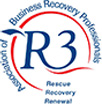This option is probably not used as often as it ought to be – partly because director’s struggle with the concept of a company voluntary arrangement (CVA) and partly because some Insolvency Practitioners find the fees unenticing!
Here at Corporate Financial Solutions, our primary concern is to help you, the client with whatever financial problems you may have. If the best way of dealing with that is through a CVA, then a CVA is what we would recommend.
For a CVA to be successful there are certain criteria that need to be met:
- The company must have a good underlying business
- The company must be capable of generating profits and cash once the pre CVA debt has been frozen
- The company will need the support of its key clients and suppliers going forward post CVA
- Ideally, there shouldn’t be a winding up petition issued – although if there is, we will speak to the petitioning creditor and try and persuade them to support the CVA.
- The company, post CVA, must be capable of funding itself within its established credit limits with suppliers and other lenders.
What is CVA?
A CVA is quite different to other forms of insolvency – the control over the daily trading activities and daily management and administrative decisions remains with the directors. The Insolvency Practitioner is only there to ensure that the company complies with whatever obligations are approved by the company’s creditors as part of the CVA.
How Does Company Voluntary Arrangement Work?
Effectively a Company Voluntary Arrangement is an agreement between the company and its creditors, to freeze the existing debt, to allow the company to continue trading and to make contributions over a period of time into a pot for all creditors. At the end of the agreed period, the Insolvency Practitioner (known as the Supervisor) will then pay the agreed dividend to the creditors. The Supervisor will then issue a certificate of satisfaction and the company is then free of its obligations under the CVA.
CVA Process
To effect a CVA, aside from the points shown above, you will need to work out what you would like to pay back to your creditors and over what period. However, whatever level of dividend you choose and whatever period you chose, this will have to be approved by your creditors. There is no point therefore offering 2p in the pound over 5 years, when it is highly likely that your creditors would vote against this. We will look carefully at your company’s current financial position and offer advice based on our extensive knowledge of such schemes, as to what we think would be reasonable and would stand a chance of being approved.
Once we’ve worked out how much and over what period, we will then do everything that is required to get the scheme approved.
- This will involve sending a copy of the proposals to every creditor that you wish to include in the scheme and preparing for either a virtual meeting of creditors or dealing with the resolutions by post.
- A virtual meeting is one where the creditors are invited to attend through some IT platform i.e. Skype or by conference call.
- Creditors are entitled to receive a minimum of 14 days and maximum of 28 days clear notice of the virtual meeting. Creditors can request a physical meeting but only if 10% in value do so, or 10 creditors or 10% in number.
- Immediately following the creditors’ meeting a shareholders meeting will be held to pass the relevant resolutions approving the CVA.
At the creditors’ meeting, the proposal is discussed and voted upon. Provided the proposal receives 75% in value of creditors entitled to vote, voting in favour, then all creditors that received a copy of the proposal are bound by it. Creditors can seek to make modifications – we can discuss this in detail with you, if you think that a CVA is right for your company.
An Opportunity to Restructure and Refinance Your Company
The Company Voluntary Arrangement can also be an opportunity to effectively restructure the company in any number of ways to increase efficiency and profitability and also to maybe refinance. This topic is too wide to discuss in detail on this page, but our highly skilled and experienced partners who specialise in corporate turnaround and restructuring would be more than happy to discuss this with you.
UK Wide Support for Businesses from our Offices in London, Nottingham, Derby and Stoke
We have offices in central London, Nottingham, Derby and Stoke, so we are well placed to support businesses throughout the UK.


